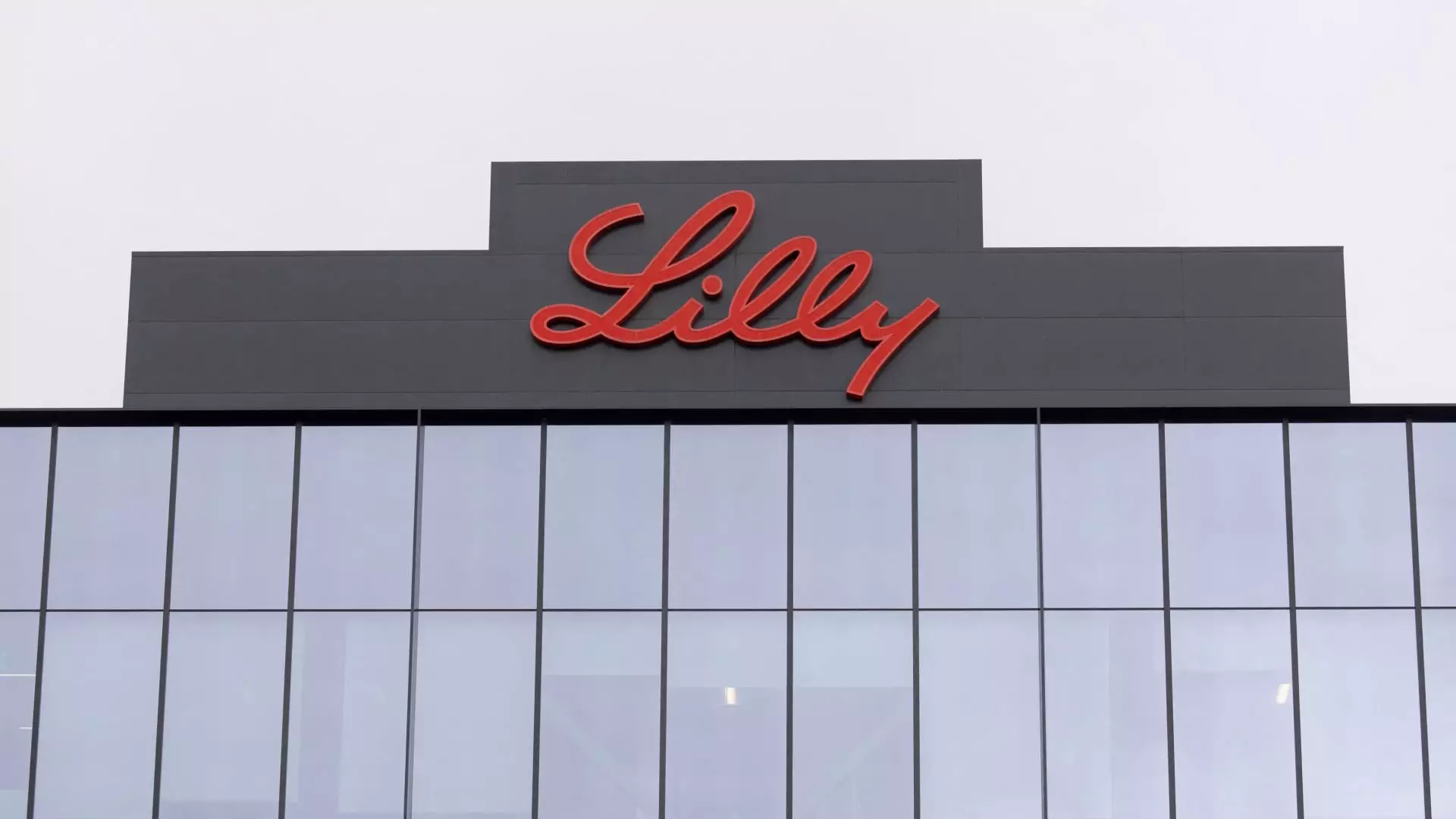As the trading hour approaches its zenith, several companies have emerged as focal points of interest for investors, showcasing a blend of volatility and opportunity on the stock market. A number of key players are experiencing significant changes in their stock prices, reflective of shifting expectations and market dynamics. This article provides an analytical perspective on some of the companies that are stirring conversations in midday trading, highlighting both gains and losses in a competitive commercial landscape.
Eli Lilly, a staple in biopharmaceutical innovations, has found itself in an unexpected downturn. With shares falling over 7%, the company announced revisions to its revenue projections for the year 2024. Initially optimistic, Eli Lilly now anticipates the total revenue to hover around $45 billion, falling short of October’s forecasts that spanned between $45.4 billion and $46 billion. This rethink stems primarily from lower-than-expected demand for its flagship weight loss and diabetes products, which could impact the company’s long-term growth trajectory. Investors are now wrestling with concerns around market saturation and competitive pressures, questioning if the company can recover its former growth momentum.
Boeing, the aerospace giant, is also feeling the weight of market scrutiny as it announced a disappointing number of airplane deliveries for 2024. The company’s shares dipped over 2% as analysts reported that deliveries are expected to plummet by roughly a third compared to the previous year, totaling only 348 aircraft. In stark contrast, rival Airbus reported 766 deliveries, widening the competitive gulf between these two titans of the skies. This stark difference raises serious questions about Boeing’s production capabilities and operational efficiency, leaving investors to ponder the implications for future contracts and market positioning.
Applied Digital: A Beacon of Growth
On a brighter note, Applied Digital emerged as a clear winner in midday trading, with stock prices surging over 6%. The pivotal moment came after Macquarie’s announcement of a substantial investment—up to $5 billion—in Applied Digital’s artificial intelligence data centers. This move not only bolsters the company’s financial stability but also positions it favorably in the emerging AI landscape. Macquarie’s agreement to acquire a 15% stake in the high-performance computing segment reflects growing market confidence, suggesting that investors are optimistic about Applied Digital’s ability to capitalize on increasing demand for data infrastructure.
Signet Jewelers, the parent company of popular chains such as Kay Jewelers and Zales, faced a challenging reality check, with shares plummeting by 26%. The company attributed this significant downturn to weaker-than-expected holiday sales, as consumers increasingly gravitated toward lower price points. Such a drastic dip in share value signals broader trends in consumer behavior and potential economic headwinds that may constrain discretionary spending in the jewelry sector. Both immediate implications for profitability and longer-term strategy will likely be scrutinized in upcoming earnings announcements.
In a contrasting narrative, KB Home saw its stock rise by 3% following stronger-than-expected earnings in the fourth quarter. Reported per-share earnings of $2.52 exceeded forecasts of $2.45, as the homebuilder also generated $2 billion in revenue against predictions of $1.99 billion. This underlines the resilience of the homebuilding sector amidst economic uncertainty, where demand for quality housing remains robust. The positive performance may present further opportunities for growth within the sector, particularly if economic conditions stabilize.
In a remarkable twist, H&E Equipment Services experienced an astonishing surge of over 105% after United Rentals announced plans to acquire the company for $92 per share. This acquisition, valued at approximately $4.8 billion, not only indicates confidence in H&E’s operations but also highlights a consolidation trend in the equipment rental market. Meanwhile, United Rentals also saw its stock price rise by 3%, suggesting that investors view this deal as mutually beneficial.
Other Notable Movements in Trading
Apart from these major players, companies such as Instacart and Celanese are also making headlines. Instacart saw a modest gain of over 1% following a rating upgrade from BTIG, emphasizing its position as a leader in the grocery delivery market, while Celanese rose 5% after being double-upgraded by Bank of America, showcasing investor optimism regarding its recovery potential.
Midday trading reveals a dynamic landscape where companies are navigating myriad challenges and opportunities. From disappointing forecasts to surprising earnings, investors must remain vigilant and informed as the market continues to evolve.

